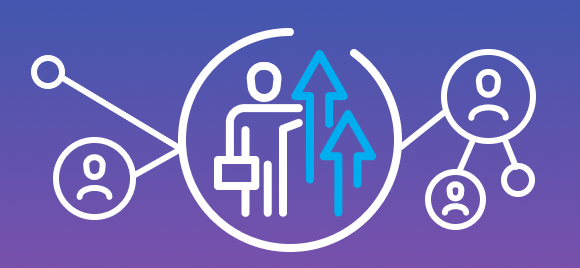It’s no secret that pretty much every company nowadays uses some combination of full-time employees and contingent / contract-based labor. And while most companies rely on their internal HR departments (or similar functions) to onboard and administer full-timers, many are confused by the best way to approach those same activities for their contingent workforce.
Fortunately, businesses are becoming increasingly aware that they can’t simply pay all their contingent workers as independent contractors (ICs) and leave it at that. They rightfully fear that the IRS or other taxation authorities could reclassify non-qualified ICs – those who operate as self-employed workers even though they don’t meet regulatory qualifications to do so – as employees and levy substantial fines and penalties.
But then how can businesses engage non-qualified independent workers as employees without them becoming that business’s employees?
That’s where Employer of Record (EOR) services come in. EORs empower businesses to strategically offload specific employment responsibilities for contingent workers, which ensures compliance and convenience when engaging contingent labor. EORs can work alongside Agent of Record (AOR) services (sometimes they may even be the same provider) to ensure a safe and efficient engagement experience for all independent workers, regardless of their IC qualification status. More on that later..
What is an EOR?
An Employer of Record assumes the intricate responsibilities and liabilities associated with employing contingent workers. This encompasses managing payroll, taxes, benefits, and strict adherence to local labor laws. Think of an EOR as an outsourced full-service Human Resources department for non-qualified (non-IC) contingent workers. (Note that many EORs also provide IC compliance services, meaning that they determine the IC qualification status of contingent workers as well.)
Benefits of an EOR:
Compliance and Risk Mitigation:
EORs bring a deep understanding of local labor laws and regulations, ensuring that the employment relationship aligns with all legal requirements. By transferring contingent workforce employment responsibilities to an EOR, businesses significantly lower the risk of legal and financial penalties associated with misclassification and non-compliance. Just like HR departments protect businesses from legal threats related to full-time employees, EORs provide a similar shield against potential pitfalls with contingent workers.
Global Workforce Expansion:
Unless you’re a giant multinational conglomerate, most businesses don’t have the resources to open offices in every country they want to operate in. EORs can be particularly helpful in this regard, as they empower businesses to seamlessly expand their workforce globally without the burdensome complexities of establishing legal entities in each new location. This is especially advantageous for businesses seeking to tap into diverse international talent pools to foster innovation and broaden market reach.
Streamlined Payroll and Administration:
EORs aren’t just an HR department for contingent workers – they also provide the Accounts Payable function. They take charge of payroll processing, tax withholdings, and other administrative tasks, ensuring a streamlined and error-free compensation process.
As above, this is particularly beneficial for businesses looking to expand their geographical presence, as EORs simplify the complexities – including currency variations – of managing payments across diverse geographies.
Timely and Adaptive Workforce Management:
An EOR offers flexibility in managing a contingent workforce without the constraints of long-term commitments. This is particularly beneficial for businesses involved in short-term projects with specialized skill requirements – such as industries with fluctuating workloads, seasonal demands, or specialized skill requirements.
Compliance Assurance:
Misclassification is a looming threat in nearly every industry. Partnering with an EOR ensures a compliant and risk-mitigated solution, fostering a secure and stable work environment – and no more sleepless nights.
Access to Specialized Knowledge:
EORs often have specialized knowledge in employment-related matters, providing businesses with on-demand access to professionals who can navigate intricate workforce challenges effectively. Further, by entrusting employment responsibilities to EORs, organizations can concentrate on their core competencies, enhancing overall operational efficiency and strategic focus.
EOR vs. AOR:
While both Employers of Record and Agents of Record (AORs) are third-party providers that assume certain contingent workforce engagement responsibilities, there are key distinctions between the two. Most notably, AORs focus on contingent workers who meet the legal requirements to operate as independent contractors – and therefore are not employees – while EORs serve contingent workers who engage as employees.
EORs therefore assume the critical position of the legal employer, overseeing tasks such as payroll management, tax obligations, and regulatory compliance. In contrast, the AORs ensure workforce compliance for qualified ICs while managing their onboarding, payments, and day-to-day support.
As noted earlier, some providers (like Prosperix) offer both EOR and AOR services. For more on AORs, please see this blog post.
EOR vs. Staffing Agency:
In their purest form, EORs stick to employment administration, not recruiting. Unlike Staffing Agencies, they don’t actually match candidates with open positions and they only take over employment responsibilities after the client has identified contingent workers to begin projects. EORs and staffing companies therefore often work closely with one another to ensure a smooth hand-off from the recruiting cycle to the onboarding and ongoing administrative responsibilities.
Please note: Just as some EORs also provide AOR services, many Staffing Agencies also provide EOR / AOR services. In addition, some contingent workforce technology providers (like Prosperix) provide EOR and AOR services as well.
Prosperix’s EOR Services
If you demand the same level of compliance and support for your contingent workers as you do for your full-timers, we’ve got you covered. Prosperix’s EOR services can help you unlock the true potential of your workforce by streamlining your operations, ensuring compliance with local labor laws, and letting you focus on core business functions – all while we take care of the complexities of workforce management. Elevate your business efficiency and explore new horizons with Prosperix as your trusted Employer of Record.

